 It’s definitely possible! Air conditioners rely on refrigerant in order to cool down the air in a home. The refrigerant cycles through evaporation and condensation, both of which transfer heat from one place to another. However, if there’s a leak in your refrigerant line, your air conditioner might start exhibiting problems in a variety of different ways. No two air conditioners are exactly the same, so depending on your unique situation, you might have different symptoms of a refrigerant leak than your neighbor or family friend.
It’s definitely possible! Air conditioners rely on refrigerant in order to cool down the air in a home. The refrigerant cycles through evaporation and condensation, both of which transfer heat from one place to another. However, if there’s a leak in your refrigerant line, your air conditioner might start exhibiting problems in a variety of different ways. No two air conditioners are exactly the same, so depending on your unique situation, you might have different symptoms of a refrigerant leak than your neighbor or family friend.
So, what are some of the signs of a refrigerant leak? And what might a refrigerant leak mean for your comfort and your home efficiency? We’re glad you asked! We’re going to answer these questions today and talk about why calling our team for air conditioning in Newberry, FL is always the right choice in this kind of moment.


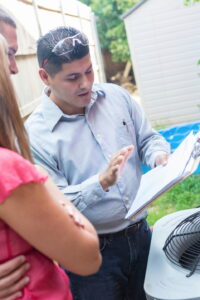 Short cycling is a phenomenon that not a lot of people know about. It’s very important to the HVAC industry, and any professional worth their salt should know what a short cycling air conditioner is and the various different causes for it. But we don’t expect homeowners to know this kind of information right out of the gate, which is why we want to talk about it today.
Short cycling is a phenomenon that not a lot of people know about. It’s very important to the HVAC industry, and any professional worth their salt should know what a short cycling air conditioner is and the various different causes for it. But we don’t expect homeowners to know this kind of information right out of the gate, which is why we want to talk about it today.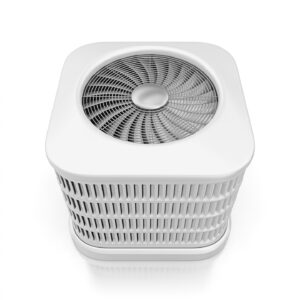 It’s not hard to talk about why maintenance is such an important aspect of any mechanical system. Getting your car inspected and tuned-up is so important that it’s practically a legal requirement in every state. While you’re never in danger of running your air conditioning incorrectly, you could find yourself sweating profusely and uncomfortable on the hottest day of the year because of a missed maintenance and inspection appointment.
It’s not hard to talk about why maintenance is such an important aspect of any mechanical system. Getting your car inspected and tuned-up is so important that it’s practically a legal requirement in every state. While you’re never in danger of running your air conditioning incorrectly, you could find yourself sweating profusely and uncomfortable on the hottest day of the year because of a missed maintenance and inspection appointment. Insulation is a tool, just like many other things scattered throughout your house. Sure, you can insulate your windows and doors for aesthetic purposes, but you see the biggest improvements when you try to use insulation to curb energy inefficiency and comfort problems. Previously, we thought that only homes in the north would require insulation, because historically it’s been a method for keeping cold air out of a home during the winter. However, times have changed, and insulation is now practically a universal necessity for homeowners, regardless of the climate.
Insulation is a tool, just like many other things scattered throughout your house. Sure, you can insulate your windows and doors for aesthetic purposes, but you see the biggest improvements when you try to use insulation to curb energy inefficiency and comfort problems. Previously, we thought that only homes in the north would require insulation, because historically it’s been a method for keeping cold air out of a home during the winter. However, times have changed, and insulation is now practically a universal necessity for homeowners, regardless of the climate.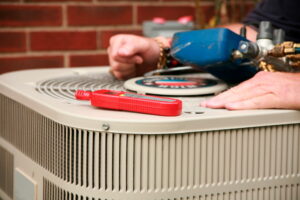 In some respects, our northern neighbors with heating systems are luckier than us. They get to give their air conditioners a break for a few months while they switch to heating. In our situation, we can sometimes run our AC systems throughout the entire year, which can really cause a tremendous amount of stress on the unit. There’s no escaping this, which is why it’s extra important for homeowners to invest the time and energy in listening for trouble that’s brewing.
In some respects, our northern neighbors with heating systems are luckier than us. They get to give their air conditioners a break for a few months while they switch to heating. In our situation, we can sometimes run our AC systems throughout the entire year, which can really cause a tremendous amount of stress on the unit. There’s no escaping this, which is why it’s extra important for homeowners to invest the time and energy in listening for trouble that’s brewing. This is really what HVAC is all about, right? Heating and cooling systems are investments, they’re systems that you’re going to hopefully use for the next decade of your life with little to no discomfort. That’s why things like energy efficiency, power, and convenience really matter—because a system that’s easy to work with and effective will make the next few years of your life a lot less stressful.
This is really what HVAC is all about, right? Heating and cooling systems are investments, they’re systems that you’re going to hopefully use for the next decade of your life with little to no discomfort. That’s why things like energy efficiency, power, and convenience really matter—because a system that’s easy to work with and effective will make the next few years of your life a lot less stressful. Last blog post we celebrated Energy Awareness Month and continuing the trend, we’re going to talk about energy bills and how they relate to your home air conditioning. It’s no secret that air conditioners rely on a large amount of electricity coming from your home. So it’s important that we talk about how you feel in regards to your energy bill and some of the trends it might be presenting you with.
Last blog post we celebrated Energy Awareness Month and continuing the trend, we’re going to talk about energy bills and how they relate to your home air conditioning. It’s no secret that air conditioners rely on a large amount of electricity coming from your home. So it’s important that we talk about how you feel in regards to your energy bill and some of the trends it might be presenting you with. We know it’s a little late, but in our opinion, it’s never too late to be aware of your energy efficiency! How efficient is your home? Are you happy with the way that your
We know it’s a little late, but in our opinion, it’s never too late to be aware of your energy efficiency! How efficient is your home? Are you happy with the way that your 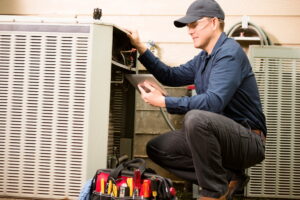 No, we’re not talking about leaf blowers or a box fan, we’re talking about your air conditioner! Sometimes there can be a problem in your AC unit that has nothing to do with the refrigerant or the compressor, and instead the problem persists in your system’s blower motor. The blower is the component responsible for—as the name implies—blowing the cool air into your duct system and throughout your home. Without a blower, your AC would just cool off the air inside of it and it would never reach the rest of your home’s rooms.
No, we’re not talking about leaf blowers or a box fan, we’re talking about your air conditioner! Sometimes there can be a problem in your AC unit that has nothing to do with the refrigerant or the compressor, and instead the problem persists in your system’s blower motor. The blower is the component responsible for—as the name implies—blowing the cool air into your duct system and throughout your home. Without a blower, your AC would just cool off the air inside of it and it would never reach the rest of your home’s rooms.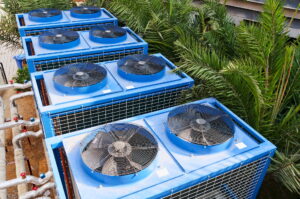 When you close your eyes and picture a bigger house with a bigger kitchen, a larger garage, and a huge finished basement, it probably feels good. As Americans, we like things that are bigger. They grant us more space, they give us room to grow and change, and even bigger cars let us go on long road trips with the family to enjoy time together. Having a larger home and larger appliances can be a huge improvement in your quality of life.
When you close your eyes and picture a bigger house with a bigger kitchen, a larger garage, and a huge finished basement, it probably feels good. As Americans, we like things that are bigger. They grant us more space, they give us room to grow and change, and even bigger cars let us go on long road trips with the family to enjoy time together. Having a larger home and larger appliances can be a huge improvement in your quality of life.




